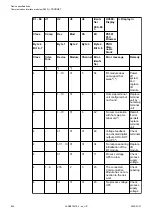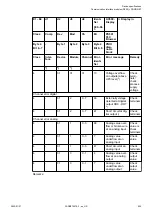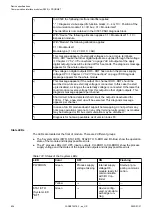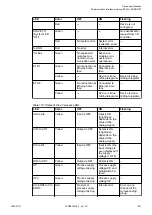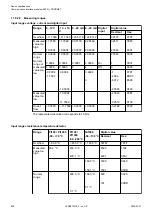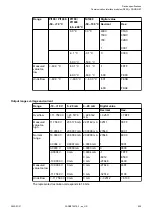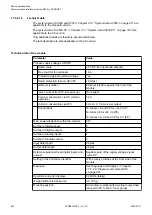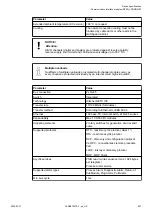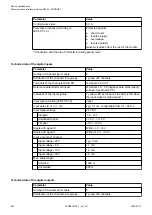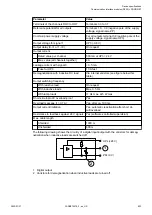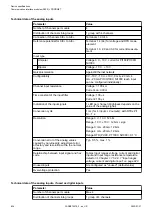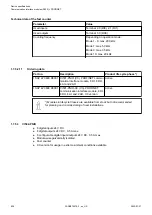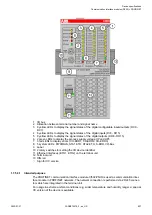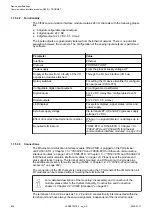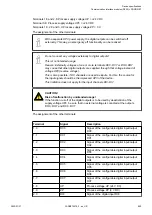
1.7.5.3.2 Functionality
The CI502 communication interface module contains 24 I/O channels with the following proper-
ties:
● 8 digital configurable inputs/outputs
● 8 digital inputs: 24 V DC
● 8 digital outputs: 24 V DC, 0.5 A max.
The inputs/outputs are galvanically isolated from the Ethernet network. There is no potential
separation between the channels. The configuration of the analog inputs/outputs is performed
by software.
Parameter
Value
Interface
Ethernet
Protocol
PROFINET IO RT
Power supply
From the process supply voltage UP
Supply of the electronic circuitry of the I/O
expansion modules attached
Through the I/O bus interface (I/O bus)
Rotary switches
For setting the IO device identifier for configura-
tion purposes (00h to FFh)
Configurable digital inputs/outputs
8 (configurable via software)
Digital inputs
8 (24 V DC; delay time configurable via soft-
ware)
Digital outputs
8 (24 V DC, 0.5 A max.)
LED displays
For system displays, signal states, errors and
power supply
External supply voltage
Via terminals ZP, UP and UP3 (process supply
voltage 24 V DC)
Effect of incorrect input terminal connection
Wrong or no signal detected, no damage up to
35 V
Required terminal unit
“TU507-ETH and TU508-ETH for Ethernet
communication interface modules” on page 122
1.7.5.3.3 Connections
The Ethernet communication interface module CI502-PNIO is plugged on the I/O terminal
unit TU507-ETH
Chapter 1.5.1 “TU507-ETH and TU508-ETH for Ethernet communication
interface modules” on page 122
Chapter 1.5.1 “TU507-ETH and TU508-ETH
for Ethernet communication interface modules” on page 122
. Properly seat the module and
press until it locks in place. The terminal unit is mounted on a DIN rail or with 2 screws plus
the additional accessory for wall mounting (TA526
Chapter 1.8.2.6 “TA526 - Wall mounting
).
The connection of the I/O channels is carried out using the 30 terminals of the I/O terminal unit.
I/O modules can be replaced without re-wiring the terminal units.
For a detailed description of the mounting, disassembly and connection of the
module, please refer to the System Assembly, Construction and Connection
Chapter 2.6 “AC500 (Standard)” on page 971.
The terminals 1.8 and 2.8 as well as 1.9, 2.9 and 3.9 are electrically interconnected within the
terminal unit and have always the same assignment, independent of the inserted module:
Device specifications
Communication interface modules (S500) > PROFINET
2022/01/31
3ADR010278, 3, en_US
838

